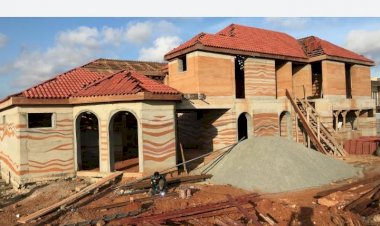Asset Management in Real Estate: A Comprehensive Overview in the Kenyan Context
Asset management is a critical discipline in the Kenyan real estate sector, enabling property owners and investors to optimize returns, mitigate risks, and enhance the value of assets.

Asset management plays a crucial role in the real estate sector, ensuring optimal performance, value preservation, and financial growth for property owners and investors. In Kenya, a rapidly developing economy with a thriving real estate market, effective asset management practices are essential for maximizing returns, minimizing risks, and enhancing overall property performance.
Significance of Asset Management in Kenyan Real Estate:
Asset management in Kenyan real estate involves the strategic oversight and operational control of tangible assets, such as land, buildings, and infrastructure, to achieve specific investment objectives. It encompasses a range of activities, including property acquisition, leasing, maintenance, financial analysis, and tenant management. The following points outline the significance of asset management in the Kenyan context:
1. Value Enhancement:
Effective asset management strategies enhance the value of real estate assets over time. By implementing proactive maintenance plans, optimizing rental income, identifying cost-saving opportunities, and making informed investment decisions, asset managers can increase property values, attract tenants, and generate higher returns for investors.
2. Risk Mitigation:
Asset management aims to mitigate risks associated with real estate investments. This involves conducting thorough due diligence, ensuring compliance with legal and regulatory requirements, implementing risk management strategies, and maintaining adequate insurance coverage. By identifying and addressing potential risks, asset managers safeguard investments and protect the interests of property owners.
3. Financial Performance:
Asset managers play a vital role in optimizing the financial performance of real estate assets. They monitor revenue streams, track expenses, analyze financial statements, and develop comprehensive budgets and forecasts. Through effective financial management, asset managers can identify opportunities for revenue growth, cost reduction, and improved operational efficiency, leading to higher profitability and sustainable long-term returns.
Key Components of Asset Management in Kenyan Real Estate:
Asset management in Kenyan real estate comprises several key components that contribute to the overall success of property investments. These components include:
1. Property Acquisition and Disposition: Asset managers analyze market trends, conduct feasibility studies, and identify suitable investment opportunities for property acquisition. They also oversee the process of disposing of assets, ensuring optimal returns for investors.
2. Lease and Tenant Management: Successful asset management involves attracting and retaining high-quality tenants. Asset managers handle lease negotiations, rental collections, tenant relations, and lease renewals. They strive to maintain high occupancy levels, minimize vacancies, and maximize rental income.
3. Property Maintenance and Upkeep: Asset managers develop and implement comprehensive maintenance plans to preserve the physical condition of properties and ensure compliance with safety and regulatory standards. They coordinate repairs, renovations, and routine maintenance, enhancing the overall attractiveness and functionality of assets.
4. Financial Analysis and Reporting: Asset managers perform detailed financial analysis, including cash flow projections, property valuations, and investment performance evaluations. They provide regular reports to stakeholders, enabling informed decision-making and transparency.
5. Legal and Compliance Management: Asset managers ensure compliance with legal and regulatory requirements, including property taxes, zoning regulations, and tenancy laws. They also manage contracts, leases, and other legal agreements, mitigating legal risks and protecting the interests of property owners.
If you have a real estate press release or any other information that you would like featured on African Real Estate Blog Post, do reach out to us via email at [email protected]


































